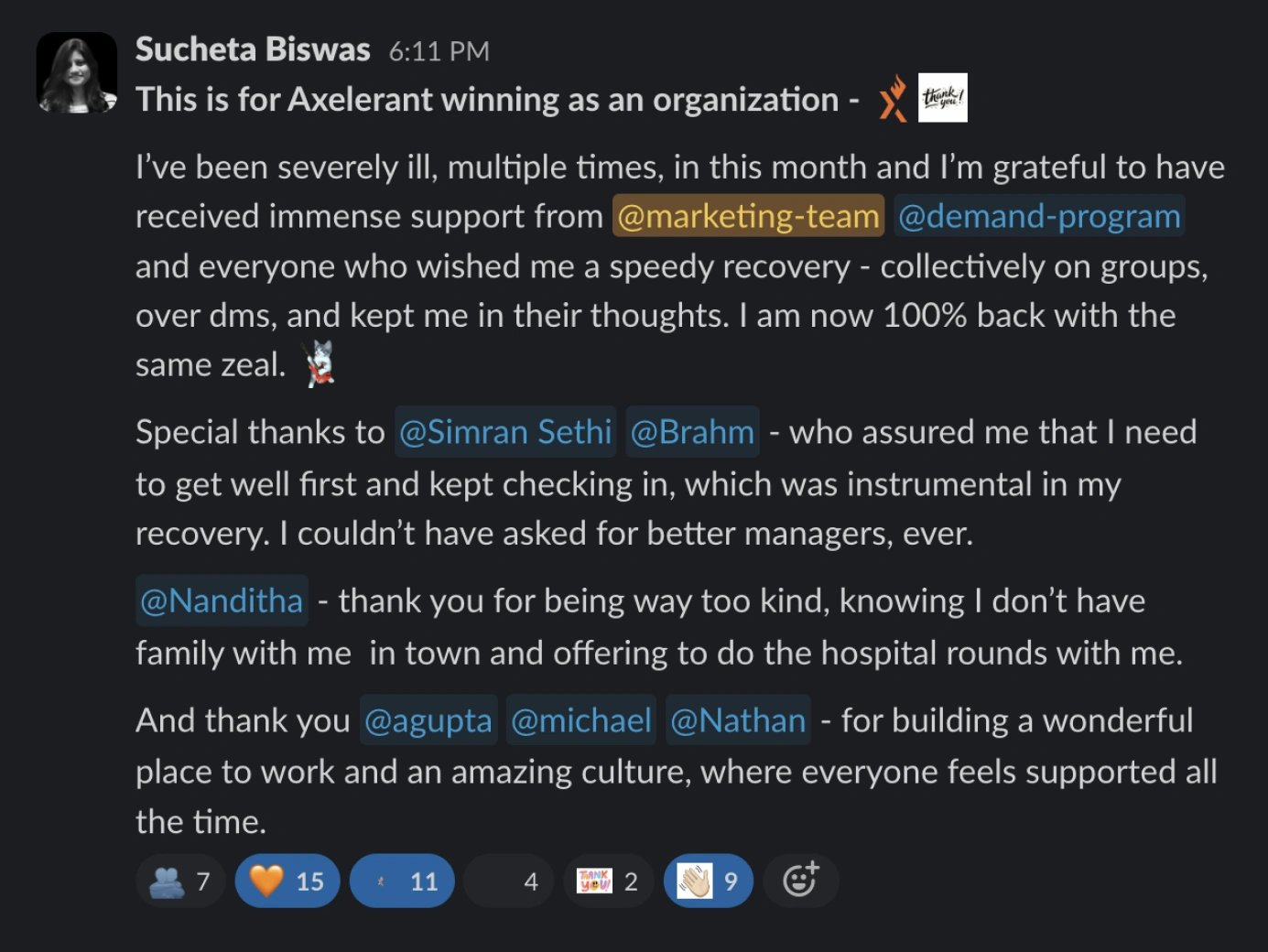Introduction
This article explores the benefits of practicing gratitude and how to do it.
Yeah, I get it. Feeling grateful is far from easy. Life isn’t always fair.
So many things go wrong everyday.
But then, so many things get right, too.
It’s up to us how we perceive life—which parts of it we focus on, let into our minds.
It’s up to us to feel grateful for all we’ve got, or sorry for what we haven’t.
What’s Gratitude?
Gratitude is the feeling of being grateful—of the blessings and bounty one receives.
Many associate being grateful with grand acts and materials.
Reserving feeling thankful for those rare occasions when an act of kindness smacks them in the face with its sheer positive force.
Like when a birthday present turns out to be the new iPhone.
And even then, people hesitate to express how grateful they feel.
But here’s the truth.
One can be grateful for anything if they learn to see how it adds value to their lives.
Value that may be material, but certainly not limited to it.
Does Practicing Gratitude Mean Giving Up On A Better Life?
There’s an existing notion that connects gratitude with a lack of drive.
For better, finer things in life. For a better life itself.
Being grateful doesn’t diminish one’s drive for a better life. It opens one’s eyes to life’s existing blessings—that make it fruitful, enjoyable, livable, here and now.
The gratitude attitude merely shifts the focus.
From constantly wanting more to appreciating what we already have.

You can still aim for higher goals—while enjoying the present and celebrating past milestones.
Celebrating the resources, the people, the support that got you this far.
You work towards the changeable, accept that some things can’t be changed, and count your blessings as they come.

What Have I Got To Be Grateful For?
It’s a question many struggle with.
If you’re one of them, fret not. I’ve got just the thing for you.
An extensive questionnaire to ponder over by Dr. Joel Wong.
Cut yourself some slack if you can’t find reasons to be grateful right away.
Daily reflecting on events, people we cross paths with, things around us, is not taught as part of growing up.
So, we’re clueless about how our surroundings affect us—until the emotions are too strong, too on the face.

Gratefulness hides in the sunny morning, a quiet thank you from a colleague, a deep conversation with a friend.
It hides in the smell of fresh coffee or a tight morning hug. Inside the coziness of a blanket in winter or the silly joke from kids.
You may think that these are too simple to feel grateful about. That they don’t count.
But here’s the thing: they do.

What Are The Benefits Of Practicing Gratitude?
Practicing gratitude brings so many benefits to the body and mind.
Not to mention relationships with people.
Even if you don’t realize that being grateful is making you healthier—it still does.
Benefits Of Gratitude On Your Mind And Emotions
Every situation has some advantages and disadvantages, every person some good habits and bad.
When we consciously practice being thankful to the good that comes to us from others, happiness and contentment follows.
Research shows practicing gratitude can lessen anxiety, stress, and help combat depression.
In fact, positive psychology researchers Martin Seligman and colleagues discovered that a single act of thoughtful gratitude produces an immediate 10% increase in happiness, and a 35% reduction in depressive symptoms.
Benefits Of Gratitude On Your Body
The link between actual physical benefits with thankfulness may be a little less conspicuous.
Practicing gratitude can:
- Help us sleep better
- Reduce blood pressure
- Improve heart health
Plus, if you count the reduction in stress, anxiety, and depression? It prevents lots of future diseases, too.
Benefits Of Gratitude On Relationships
It’s common sense that practicing thankfulness in a relationship takes it on a whole new level.
Whether it’s a romantic or professional relation, expressing gratitude strengthens the bond.
Studies show that even the innocent bystander, witness to an expression of gratitude between two people, will feel warmth and affinity towards them.
At work, a regular practice of expressing gratitude can build more robust teams and influence people’s decisions to remain in the organization.

According to a Great Place to Work Institute survey, recognitions—not pay or perks—was the most powerful reason for people to produce great work.
How To Practice Gratitude?
Gratitude is a way of life. A powerfully positive one.
And to embrace it, you need practice.
Intellectual knowledge is only the first step towards real change.
Gratitude practice has four parts to it:
- Observe
- Think
- Feel
- Do
In real life, some of these happen simultaneously and at a subconscious level when we feel thankful.
But we want to be conscious about it while practicing.
Let’s take a small example to understand these stages.
Suppose you’ve been advised by your doctor to drink more water throughout the day.
But you keep forgetting about it at work.
And a colleague takes it upon them to remind you whenever they can.
Observe
Don’t just gulp down water looking at the screen.
Take a moment, and observe.
- What was your friend doing when they reminded you to drink water?
- Did they set aside their work to make sure you stay hydrated?
- Did they walk to your desk? Drop a message in your inbox?
Notice their effort.
You may find that reminders are not the only thing your colleague does for you.
Gradually, you’ll be able to observe all the other positive gestures that come your way from the people around you— and not just at work.
Think
Reflect on the impact of these reminders on your life.
James Clear, in his book Atomic Habits, mentions how small steps—unforgotten sips of water throughout the day, in this case—can create momentous differences.
These reminders help improve your health, work experience, productivity, and overall well-being.
(I’ve seen people faint and hospitalized from dehydration, because they couldn’t remember to drink enough water!)
Feel
Once you notice and realize the impact of your colleague’s reminders, look within.
Allow yourself to feel the positive emotions that emerge.
Embrace that sense of thankfulness towards your colleague’s care for you. Towards the person.
Acknowledge their kindness and love expressed through these small gestures.
Do
It’s time to spread that goodness. Reciprocate.
Here’s where things get even more interesting—for you.
Research shows when you reflect and express gratitude, your brain releases dopamine and serotonin.
These chemicals make you feel good, happy, positive, and increase motivation and willpower.
Can you imagine?
A simple, heartfelt thank-you note making your brain glow up with all the right chemicals?
Start Your Gratitude Practice Today
Experts believe practicing gratitude even once in a day is enough to reap its benefits.
The aim is to be genuine, honest, and specific about the subject of gratitude.
Here are a few things you can incorporate into your life:
- Morning reflections: Start with a determination to be grateful for all the positive things that you receive. Tony Robbins calls this priming.
- Gratitude journal: Dedicate a few minutes daily to jot down things you appreciate or moments that brought joy. This helps reinforce positive thoughts. It could be about a glimpse of a colorful bird at lunch break. Or a birthday gift you gave to yourself.
- Express thankfulness: Verbally express your gratitude to someone who's helped you or made you feel good. It could be a colleague, family member, or a friend. You may send a written note, too.
- Mindful appreciation: In the midst of life, as it unfolds every moment, be mindful about the little things that make your life enjoyable, beautiful. A good film, a conversation with a friend, a cup of tea, access to fresh water and air, machines to control temperature, blooming of a flower, etc. There are so many things that add value to our lives every day.
- Evening recap: Note down three to five things you felt thankful for that day. This practice showed me that each day could be taken as a bad or a good day—depending on what you focus on at the end. Like childhood memories.
Let’s spread the magic of gratitude one thanks at a time.


Rohit Ganguly, Content Marketer
Rohit is a content marketer first and a YouTuber second. He loves to interact with animals, feed them, clean his apartment, and spend time with friends and family. Curious by nature, he also enjoys literature, movies, meditation, and calligraphy.

 We respect your privacy. Your information is safe.
We respect your privacy. Your information is safe.



Leave us a comment